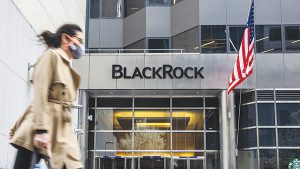There is no shortage of candidates for the title of the most dangerous business idea of the moment. Management-by-algorithm may remove what humanity there is left in the corporate world. The office-less future may dissolve workers into angst-ridden atoms. I want to suggest a less obvious contender for the title: “social purpose.â€
The idea of social purpose can be heard wherever high-minded people gather to talk about business. In America, BlackRock Inc’s CEO Larry Fink argues that companies should have a “social purpose beyond financial performance,†and that this purpose should involve a “positive contribution to society.†In France, the 2019 Pacte Act gives companies more freedom to pursue social as well as profit-maximising purposes. Globally, almost every management consultancy or accountancy worthy of the name has a practice devoted to the
promotion of the p-word.
Yet the clamor for social purpose may be heard today most loudly in Britain, the country that invented the limited liability company. The British Academy, a club of prominent academics, recently concluded a four-year project on the future of the corporation with a tortuously alliterative definition of the purpose of business: “creating profitable solutions for problems of people and planet, and not profiting from creating problems.†More than 900 British businesses, from local firms to high-street brands, have jumped on the “purpose†bandwagon.â€
It’s tempting to dismiss the academy’s work as yet more well-meaning guff, up there with mission statements and “we are the world†advertisements. What does it mean for a corporation, as opposed to an individual, to have a social purpose? And what is the distinction between a business purpose and a social purpose? The French defense and technology company Thales SA spent six months working on a statement of its corporate purpose, consulting more than half its 86,000 workforce, only to come up with “building a future we can all trust.†Terry Smith, the boss of the £29 billion Fundsmith Equity Fund, is so sick of Unilever Plc’s habit of dolloping the term on everything that it produces that he exclaimed, in a recent letter to investors, that “a company which feels it has to define the purpose of Hellmann’s mayonnaise has, in our view, clearly lost the plot.â€
Corporate activists have drafted a Better Business Act to update the 2006 Companies Act and put “social purpose†at the heart of British law. The British Academy has provided a blueprint for a new corporate regime.
Directors will be held to account for reaching social purposes rather than financial goals. Shareholders will have a duty to advance corporate purpose as well as their right to derive financial benefit from ownership. Auditing committees, consisting of both insiders and outsiders, will hold companies to account for their impact on “people and planet†equipped with new measurement systems and the ability to deprive the business of its corporate charter. Colin Mayer, the founding director of Oxford’s Said Business School and the leading guru of the movement, lists as examples of “social purpose†tackling inequality, social exclusion, climate change, biodiversity loss and the future of work.
To realise just how radical this is you need to grasp two things. The first is that the purpose movement doesn’t want to broaden the range of options available to business. There is nothing in current corporate law to prevent companies from pursuing “social purpose†if they so wish. Managers can emphasise the rights of stakeholders rather than shareholders, as Unilever does with so much preening; or they can turn their companies into “B†or benefit corporations that make an explicit commitment to put social and environmental concerns on an equal footing with financial ones; or they can straddle the divide. There is no shortage of fund managers who emphasise ESG.
The second is that the “purpose†movement is much more than stakeholder capitalism in new clothes. The advocates of stakeholder capitalism only want to undo the Chicago School revolution of the 1970s that put shareholder value at the heart of the corporation. The advocates of social purpose want to go much further and undo the liberal revolution of the 1850s. Before the liberal revolution, businesses had to demonstrate that they were pursuing a social purpose in order to earn the privilege of limited liability. This might mean anything from building a bridge or colonising the New World, but it inevitably involved going cap in hand to the government to plead your case, a process that could take months and cost serious money.
Putting social purpose at the heart of business would not have saved the world from the biggest economic disaster of recent years — the global financial crisis. The underlying problem was not that predatory lenders lent so much money to people who had poor credit scores. It was that the lenders had so much money to lend to high-risk people in the first place.
“Social purpose†will make it harder for companies to do their basic job — competing with each other to produce the best products and services at the lowest prices. The historic sustained growth that followed the liberal legislation of the mid-19th century can hardly be an accident.
—Bloomberg
Adrian Wooldridge is the global business columnist for Bloomberg Opinion
. He was previously a writer at the Economist. His latest book is “The Aristocracy of Talent: How Meritocracy Made the Modern World”
 The Gulf Time Newspaper One of the finest business newspapers in the UAE brought to you by our professional writers and editors.
The Gulf Time Newspaper One of the finest business newspapers in the UAE brought to you by our professional writers and editors.

